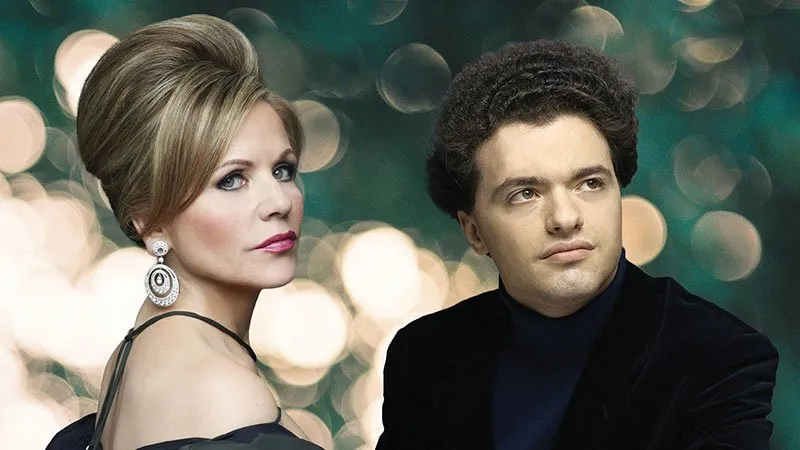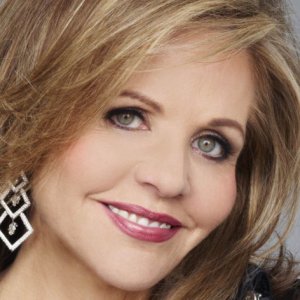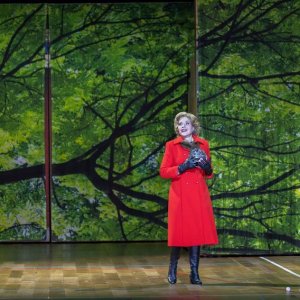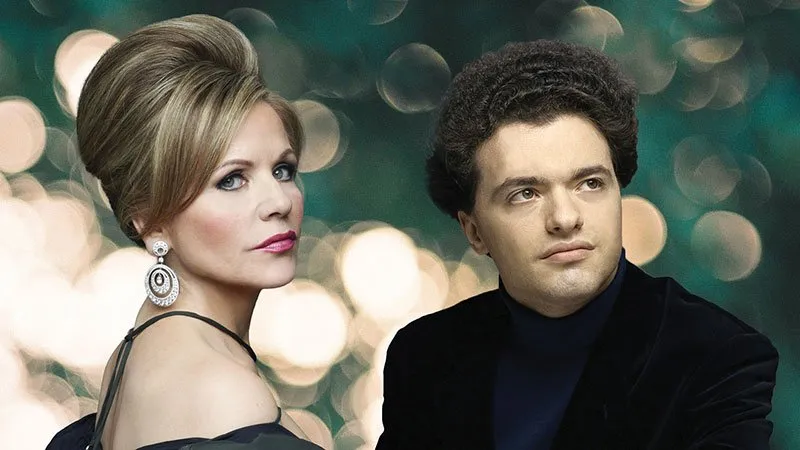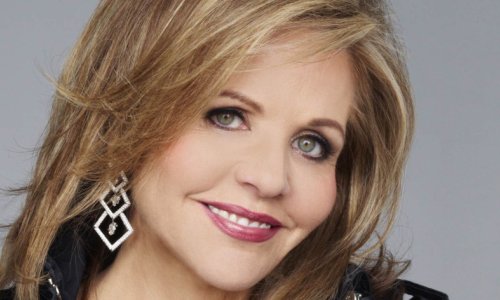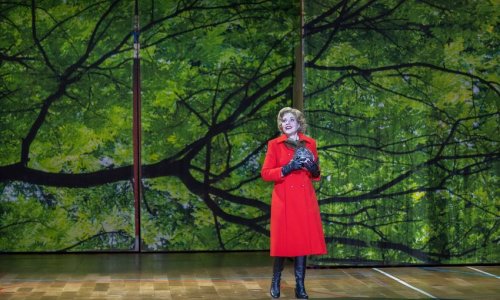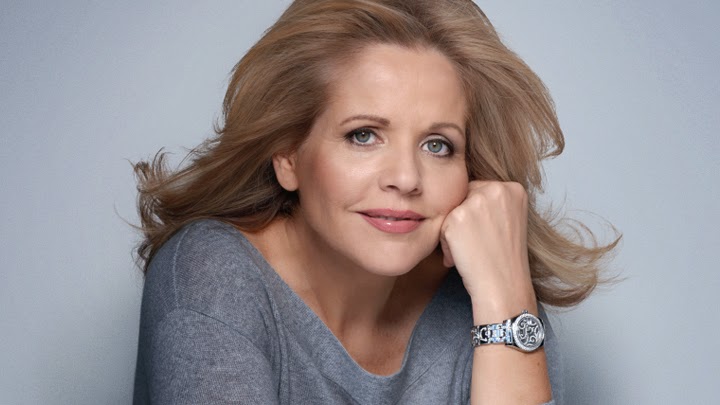
Renée Fleming: "I’m not going to retire that soon"
* Click aquí para la versión en español
Today, American soprano Renée Fleming (1959) is one of the great opera divas, perhaps one of the last soloists who are worth such qualification. Endowed with a silky instrument, those that float with unparalleled smoothness, she has managed to carve her own way since her beginnings back in the eighties. Slow but steady, conscious about the passage of time, as if she herself was that Marschallin she so often has interpreted, she seems be drawing on the horizon a slow and safe retirement from stage, allowing more time for recitals, even musicals, and perhaps for teaching too. Next autumn she will star in a new production of Der Rosenkavalier under the stage direction by Robert Carsen, at the Royal Opera House in London.
In my opinion you live now, in a way, your sweet maturity. I wonder to what extent you planned your career as it has finally developed, from bel canto to Mozart, going through Strauss and other repertories. Was it planned or it just happened bit by bit?
I actually did not plan it this way, but as it was happening, I did become aware that it was a more or less logical path. I didn’t make any sense to reach Strauss without that musical safety which builds in your voice with Handel and Mozart, for example. Without that early support, today I would not be singing, that’s for sure. Clearly there is a repertoire, the bel canto, which I gradually moved away from my schedule for a number of reasons, out of curiosity and interest in other composers, by market demands and also because it takes a fresher and more flexible voice to be perfectly fair.
How was your encounter with Strauss? Almost love at first sight I would say.
Arabella was my first Strauss. I made my debut in 1998 in Houston, under the baton of Christoph Eschenbach. In 2000, I sang my first Rosenkavalier. I did it in London, San Francisco and New York and it was certainly a revelation to me. Somehow it is the role of my life. I will perform it again now in London and New York, in the new production of Robert Carsen; I’m really looking forward to it. Four years later, in 2004, my first Capriccio arrived, another work that I love and that I’ve carried with me along many theatres since then, from Paris to Vienna through New York and Chicago. For me, these are the three most important Strauss roles. Later, I also added Daphne in Michigan and Ariadne in Baden-Baden, but these roles have not been as significant as the other three.
During the last year, maybe a year and a half, it has been rumoured that you are trying to gradually retire from stage. To what extent is this true?
No, I’m not going to retire that soon (laughs). I’ve been working a lot, it is true that this world wears one out and eventually you get tired at times, but it is also addictive. I do not want to retire, but perhaps I do want to rethink my career, leaving more time for concerts and less for the opera represented, which demands are very harsh. You see, it’s been over twenty years that I’ve been planning my schedule mainly thinking about my family, my children. To be honest with you, it is a priority that increasingly carries more weight, although it is always possible to find a way to combine everything in balance.
Would you enjoy teaching?
Not teaching as a such but specific master classes, a more personalized and occasional teaching. I think I have some experience to share but I do not feel capable of “teaching" in a strict sense, as if I was a master of bel canto. That does not appeal to me.
A few months ago, in Madrid, you experienced some master class with public.
Yes, it was fantastic. The singers were fantastic and we had a great audience. I had a great time and learned a lot too.
In 2005, you published a book, The Inner Voice. Why did you decide to write it?
It was not my idea really, but it was a great project. I believed then, and I still think today, that I could help many people talking about this whole process of building a career. Both those who choose to engage in a lyrical career as those who are around them, they should all be aware that it takes hard work. Behind success and red carpets, there are many disappointments. And yet, you must believe in yourself, your talent, and bet on your vocation. "
At certain point you mentioned that your model to guide the final stage of you career was Leontyne Price.
Yes, when I said that I was referring mainly to the fact that Price continued giving concerts for fifteen years after he left the opera stage as such. His voice allowed him to do so and there is so much art to do.
When did you realize that the bel canto was no longer the core of your agenda?
In fact, it was not so much the feeling that I was no longer able to continue singing bel canto as before, as the fact that I seriously began to consider other roles that few years before, weren’t in my horizon. Parts as Rusalka, which I debuted in 1990, Thaïs that I did for the first time in 1991 or, of course, Tatiana from Eugene Onegin that I did in Dallas in '92. All were fascinating roles that I could finally take seriously. After, some others arrived, Jenufa, Desdemona in Verdi's Otello, Ellen Orford from Peter Grimes, Marguerite in Faust, Massenet's Manon ... In about five or six years, the centre of my repertoire went from being in the bel canto and Mozart's operas, which I kept singing, to be in these new roles, they were not only an incentive for me but also something interesting for the theatres and the public.
And what about Mozart? It seems that at one point, mature lyric sopranos seem to put it aside. For example, you would still be a perfect Countess.
To be honest, I sang the Countess for about ten years and I think that was enough. I learned to sing Mozart, it's wonderful. But sometimes you do not decide exactly what you sing. What I mean is that no matter how appropriate a repertoire for your voice is, there are still many more factors out there that determine our schedules. In Mozart’s case, I just think that my time with his operas ended, but naturally, without making a proper decision.
Speaking of your repertoire, how is it that you haven’t sung parts like Elsa from Lohengrin? Or for example, why didn’t you deepen into Amelia from Simon Boccanegra?
I did Amelia Boccanegra in a series of performances in Covent Garden, in '95 it was ok but it was not the role of my life. Elsa from Lohengrin is definitely too heavy. However, I did sing Wagner: perhaps many people do not remember that I sang Eve from Meistersinger in Bayreuth,in 1996. My voice has always been very lyrical, although my repertoire had been expanded.
Verdi and Puccini have not been the focus of your repertoire, although they seem to be central in the repertoire of almost any pure lyric soprano.
I think today this repertoire is interpreted according a too heavy concept, with a style that does not really fit me. Probably sixty or seventy years ago, I would have built my career more focused on Verdi and Puccini, but today these operas are understood differently and the public is used to hear this repertoire in other voices, heavier and darker.
Several months ago, James Levine announced that his relationship with the Metropolitan in New York was finished. You two know each other very well, you have worked together many times. What has Levine meant to the Met?
Levine has been crucial for the Metropolitan we know today, for the theatre concept which works today. It’s been forty years there, making a mark on it with his own personality. My work together with him was always very fruitful.
In the past you also worked with legendary masters such as Sir Georg Solti or Charles Mackerras. What do you remember of them?
They were fantastic! I learned a lot from them in my early years. Also, I have great memories of my collaborations with Christoph Eschenbach and Valery Gergiev. In fact, my favourite collaboration with other artists is mostly with musical directors. I'm not sure why, but I've always had a great understanding with them.
You are going to come back to Spain soon, at the end of the following season, for a concert with music by Strauss with Christian Thielemann.
Yes, the concerts in Spain are part of a tour with the Staatskapelle from Dresden. Thielemann is a brilliant master of this repertoire, a guarantee with Strauss.
On more than one occasion, you carrid two fundamental references for you, the sopranos Elisabeth Schwarzkopf and Victoria de los Angeles.
Yes, I love Victoria! Even today I often listen to her and set as example when I work with young singers. Los Angeles is a guide when it comes to look for a bright sound.
In the past, you’ve had some experiences with the world of musical, even in Broadway. Are you planning to allocate more time in your schedule for these commitments?
Actually, no. I'm not that interested right now, I have a lot to do before that. I'm not saying I won’t do it in the future, I do not want to close my doors. But it is not exactly the direction I'm willing to take now. Nor do I seek to expand my repertoire as did long ago. But I am really very interested in contemporary music. The new composition is fascinating and I like to engage with projects that have to do with this. Right now, for example, I am working on a very exciting project about the artist Georgia O'Keeffe.
However, a lot has been said about how difficult is selling tickets with newly composed music. How can you solve this crossroads?
In Chicago, we put together a new opera based on the thriller Bel Canto by Ann Patchett, with a script that revolves around a terrorist episode in Lima, in the late nineties. It was therefore a new composition and also on a very current topic. And it was a great success. At the end it is a matter of quality; the new is not at odds with the popular.
What do you think about broadcasting in cinemas and all this new audio-visual dimension that has invaded the opera world in recent years?
I think it has been great, a real finding; somehow, it has been a small revolution in this world, sometimes so stuck in the past.
Don’t you see it as a risk to a true live experience in the theatre?
I understand there is a problematic link between those two experiences, that is true. In the short term, retransmissions may be able to withdraw or move away part of the public who comes to the theatres, some people who might settle for watching in the distance, from cinemas. But in the long run, I think this contributes to a wider audience, to popularize the genre in the best possible sense, making it go further, with fewer barriers.
The situation is very different in each place. The exception is actually Europe, where almost every town has an opera house with a stable and interesting programming. America is different, of course, there are many places where you can not see an opera if it isn’t through broadcasts in cinemas. In such cases, new technologies have made the opera more accessible and perhaps more fair.
Your recital in Madrid ended with a Spanish song, drizzled with a fairly unique show, I would say. The truth is that you haven’t sung much in Spanish, nothing really.
No, I have not sung much in Spanish. And it's a shame; I would love to. I love their country and their culture. I wish I could!
* Traducción: Ester Carrasco





